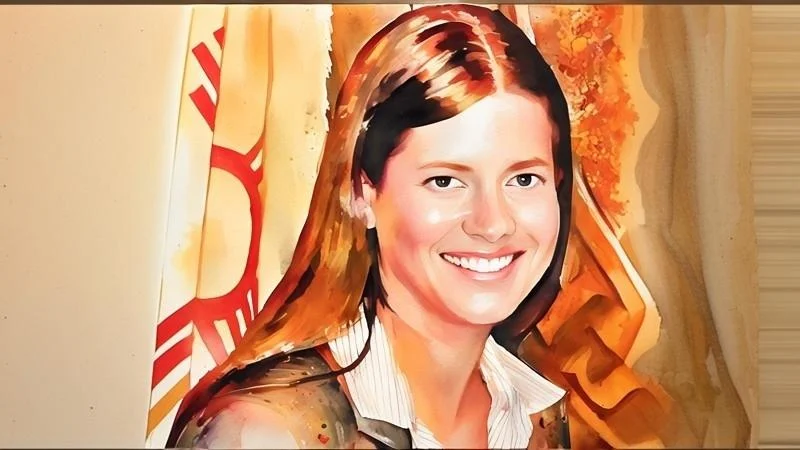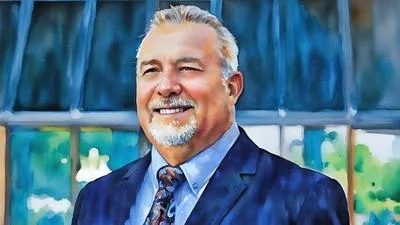With overstretched legislators, difficult budget processes, and rising environmental and infrastructure challenges, at least one New Mexico group says the state needs policy solutions that are clear-eyed, practical, and rooted in community values. Think New Mexico is pushing for such practical change.
Kristina Fisher, Associate Director of the nonprofit and nonpartisan think tank is a New Mexico native. She began with the organization in 2001 as its third intern shortly after graduating from college. She has since dedicated over two decades to improving the lives of New Mexicans through research-based solutions. “It’s the right fit,” she says. “I really got to help build and create it,” she says of the organization.”
Fisher explains that the name “Think New Mexico” urges people to put the state at the center of their thoughts. “I grew up here, went away for college and was absolutely miserable out of New Mexico,” she recalls. She says that when she was offered the job she said, “Well, that sounds about like what I’ve been doing anyway.”
The organization’s role, she says, is to fill in the gaps for overburdened lawmakers: “Our legislators are unpaid—they don’t have much staff—so we’re in a position to do a deep dive on policies... and then present that information.”
Strategically located across the street from the State Capitol in Santa Fe, Think New Mexico regularly hosts lawmakers who stop by to collaborate. The close proximity helps create a working relationship that is vital to the legislative process. “That’s one of the reasons we like being positioned so close, physically, to the legislatures. We often help them,” she says.
Fisher is also quick to bridge perceived divides between conservationists and sportsmen. “I don’t think that’s true,” she says about the idea that environmental advocates oppose hunting and fishing. “Hunters and fishers absolutely need intact habitat for the game and fish species... That was really where the environmental movement started.”
When asked how citizens can get involved, Fisher encourages volunteering and advocacy. “Everyone is welcome,” she says. “We have volunteers from toddlers to folks in their 80s.” On the policy front, she urges residents to use Think New Mexico’s website and action center. “We have pre-written emails that folks can edit... You just put in your address. It'll go to your senator and your representative.”
Fisher believes that small actions add up. “It doesn’t have to be a big time commitment... you can put that in your email and say, you know, can we have coffee sometime?” She stresses New Mexico’s unique political accessibility. “Everybody’s still neighbors,” she says.
Asked if people can still cooperate in a polarized climate, she responds confidently, “I do.” She cites bipartisan support as a hallmark of Think New Mexico’s legislative efforts. “Our medical malpractice bill this last session had 24 bipartisan co-sponsors—12 Democrats, 12 Republicans.” She believes New Mexico’s small size fosters personal relationships that counteract polarization. “They’re going to go run into each other at the grocery store... So it’s hard to sort of depersonalize.”
Fisher defines environmental policy considerations as “making sure that everybody is treated fairly in terms of access to clean water, clean air.” She points to Las Vegas, NM, as a community still suffering from fires that decimated its water treatment system. “They need to be high on the list,” she says, lamenting the current system of capital outlay where “we split the capital dollars across all 112 legislators and the governor.” According to Fisher, this means, “you’re not funding the big thing.”
While the solution seems obvious to Fisher—“Let’s have a capital plan. Let’s fund things in priority, fully fund them, get them done”—she acknowledges the political resistance. “Everybody likes having that little bucket of money... Every legislator likes that.” Still, she insists that an informed public can tip the scale. “The more the public understands about it... the more we’re able to overcome the political reality.”
Fisher’s first campaign with Think New Mexico—a successful fight to repeal the food tax—took three years. “We had 15,000 emails on the food tax one year, and that made all the difference.”
For Fisher, the most difficult part of her job remains the disconnect between “the common sense solution and the political reality.” But with clarity, commitment, and community, she’s confident change can come.









